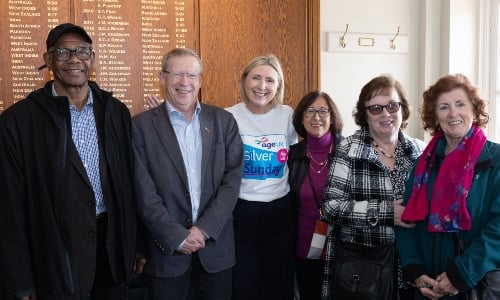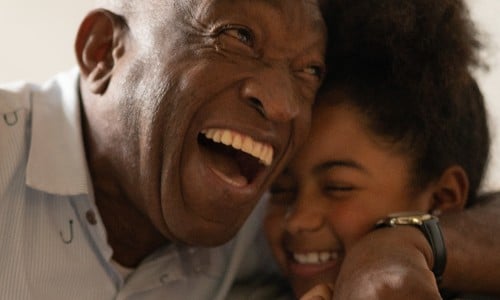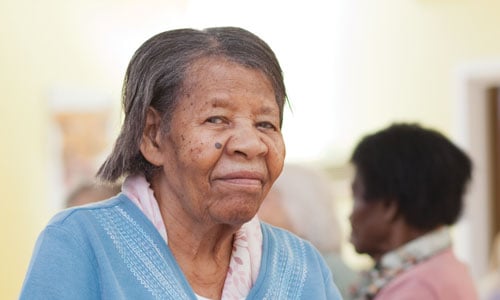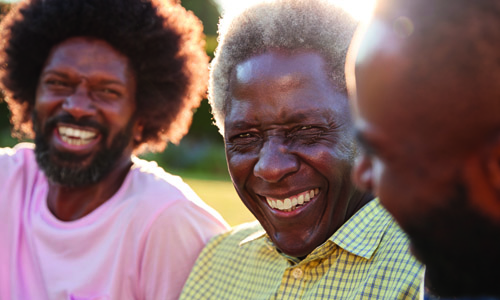Our new report, ‘Ageing while Black: the experiences of Black Caribbean older people in England’ shows how lifelong experiences of racism, discrimination and inequality impact on the experience of ageing for people of Black Caribbean heritage, particularly in relation to financial security, health and wellbeing.
It's the first time that Age UK has specifically examined what it means to grow older as a person of Black Caribbean heritage living in England. As the UK’s older population becomes more diverse, the report was prompted by the desire to better understand how older people from different ethnic backgrounds are experiencing ageing – an area that has been under-researched and poorly understood for too long.
Here are some of our key findings:
The effects of discrimination accumulate over time
Our report finds that older people of Black Caribbean heritage living in England have experienced racism and discrimination throughout their lives, causing harm to mental and physical health, and resulting in socio-economic inequality that leads to increased poverty, poorer housing, and fewer opportunities for well-paid and secure work.
But the report also highlights the way that this discrimination and inequality accumulate over time. Experiencing decades of racism and prejudice means that people from Black Caribbean backgrounds face poorer financial security, health and wellbeing in older age in comparison to older people from White backgrounds. For example, 31% of pensioners from Black backgrounds are living in poverty in comparison with 16% of White pensioners; Black Caribbean older households are more likely to be paying rent or a mortgage into older age; and Black Caribbean households aged 50+ are twice as likely to live in housing deprivation.
These socio-economic inequalities also impact on and compound one another. For example, poverty and health are linked in various ways. Lower incomes may increase stress in everyday life that over time prove harmful to health, while poor health may limit opportunities for employment and reduce income.
“There’s still a long way to go.”
This Black History Month, Age UK storyteller Elaine discusses inspirational figures, keeping connected with her Caribbean culture, and why celebrating the Black community is so important.
Racism is a health risk
As well as these socio-economic effects, there is increasing evidence that racism has a direct impact on both mental and physical health.
The chronic stress caused by long-term direct and indirect experiences of racism leads to a more rapid ageing process known as ‘weathering’. Black Caribbean older people are more likely to be in poor health than people from White backgrounds, and rates of poor health among Black Caribbean men and women are equivalent to the rates of poor health among White men and women aged 10 years older.
Black Caribbean older people living in England are also more likely to have a disability in comparison to the average in the population as a whole (40% vs 35%).
In addition to the above inequalities, the participants of our research project highlighted experiences of racism when accessing healthcare, including unequal treatment and a dismissal of pain and symptoms. Some experienced ageism too, showing how complex and intersectional the discrimination faced by older people from minoritised ethnic groups can be.
Worryingly, in some cases, these negative experiences reduced trust in the healthcare system to the extent that participants no longer wished to seek treatment with the NHS. Instead, participants began to rely on alternative treatments from outside formal healthcare instead, which is likely to have detrimental impacts on their health in the long term. More needs to be done to reduce health inequalities and build trust in the health service among older people from Black and other minoritised ethnic backgrounds.
Black Caribbean older people have less financial security
Our report shows that Black Caribbean older people face high poverty levels, often as the result of experiences of labour market inequalities, racism and discrimination throughout their working lives.
These labour market inequalities lead to lower earnings across the course of the individual’s working life, and a reduced pension pot. Pension inequality is a particular issue – only 37% of Black pensioners receive an occupational pension in comparison to 64% of White pensioners. This gap widens for women, reflecting the wider gender pensions gap across the UK, where women typically retire with significantly smaller pensions than men.
A further issue is low benefit take-up. Older people of Black Caribbean heritage are often put off applying for support due to mistrust of the Government, particularly those who have been directly or indirectly affected by the Home Office Windrush Scandal.
Our research also found that some older Black Caribbean people and their adult children don’t apply for state support due to both a lack of awareness about what is available and culturally ingrained notions of self-sufficiency. Addressing discrimination in employment, the pensions gap, and raising awareness of available benefits alongside building trust in Government institutions is key to reducing economic inequality and hardship in older age.
Finding solutions
Overall, our report highlights that racism and discrimination are pervasive across all societal institutions, whether in education, healthcare, employment, or housing.
Therefore, a holistic approach is required to rebuild institutions and services in a way that enables people to be authentically themselves, to reduce inequality, and to live and age well in this country.
In the words of one participant: “To forge a better future for older Black Caribbean people, those in positions of power must implement policies and legislation that radically rethink and reshape the way institutions and services function and treat Black people, as well as other oppressed groups in society.”
We all have a responsibility to take this work forward.
Read the full Ageing While Black report
Learn more about the experiences of Black Caribbean older people in England.






